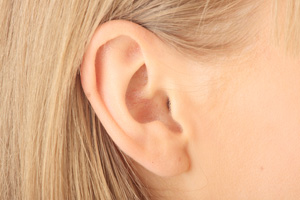Pulse In Ear

What to Do for a Pulse in Your Ear
Have you ever heard or felt a pulse in your ear? Just about everyone has at one time or another but for most, it is either a one time thing or something that happens when you have a cold or a headache. It is possible, however, for you to have a pulse in your ear all the time or a pulse in your ear which comes along because you have something seriously wrong with your health.
|
|
There is actually a name for a pulse in your ear and it is called pulsatile tinnitus. It can be a single or a double beat, a noise that sounds like a thumping, or it can just feel exactly like your heart is beating in your ear. You actually have tinnitus when you have a ringing in your ear(s). Pulsatile tinnitus is specific to feeling a pulse in your ear, and it only occurs among three percent of the people who have tinnitus.
Any way you look at it, having a pulse in one or both of your ears can be somewhat disturbing, or at the very least, distracting. What to do for a pulse in your ear depends on why the pulse is there in the first place. Usually the pulsating is caused by decreased blood flow in the neck and head area. Decreased blood flow in the arteries and veins can be caused by many different conditions.
|
|
Some of these conditions can be very serious and some can be very minor. They can include a heart murmur, high blood pressure, intracranial vascular lesions, middle ear effusion, atherosclerotic carotid artery disease, glomus tumor, and twisted arteries, among others. This is why it is important to tell your doctor if you have a pulse in your ear, even if you think it is nothing serious.
High blood pressure, for instance, can be a serious condition because it can lead to heart disease. If your pulsatile tinnitus is caused by high blood pressure, your doctor will probably put you on blood pressure medication, which will lower your blood pressure, end the tinnitus, and most likely add a few years to your life.
When you have pulsatile tinnitus, your doctor may order angiography (heart tests), a CT scan, MRI, ultrasound or MRA. There will be a systematic battery of tests designed to eliminate a variety of causes. Treatment can include prescription drugs, homeopathic remedies, or relaxation exercises, if the pulsating is caused by something like stress or anxiety.
Pulsatile tinnitus used to be more of a condition which occurred among senior citizens, as it was a situation that seemed to develop with age and changes in your health. But today tinnitus is experienced just as often by young people and middle-aged people as people over the age of sixty-five. Experts believe it is because the noise of everyday life has increased dramatically in the 20th and 21st century.
Television, movies, radio, video games are all often played very loud day in and day out. This is leading to hearing disorders and damage to the nerves in the ears. Noise is becoming one of the main causes of pulsatile tinnitus. People with tinnitus do not always hear the same type of sound. Some people hear more of a ringing and some people even say their noise is more like a wheezing sound in the ears. Young and old people are feeling the same pulsating effect though, and noise as a cause is being studied among people of all ages.
If you do have a pulse in your ear and suspect it might be pulsatile tinnitus, be sure to see a doctor. It may be something minor, but if it is not, it is going to be a condition that gets worse over time, such as a condition of the heart or brain. Get it checked out ASAP. The answer may be as simple as changing your diet.